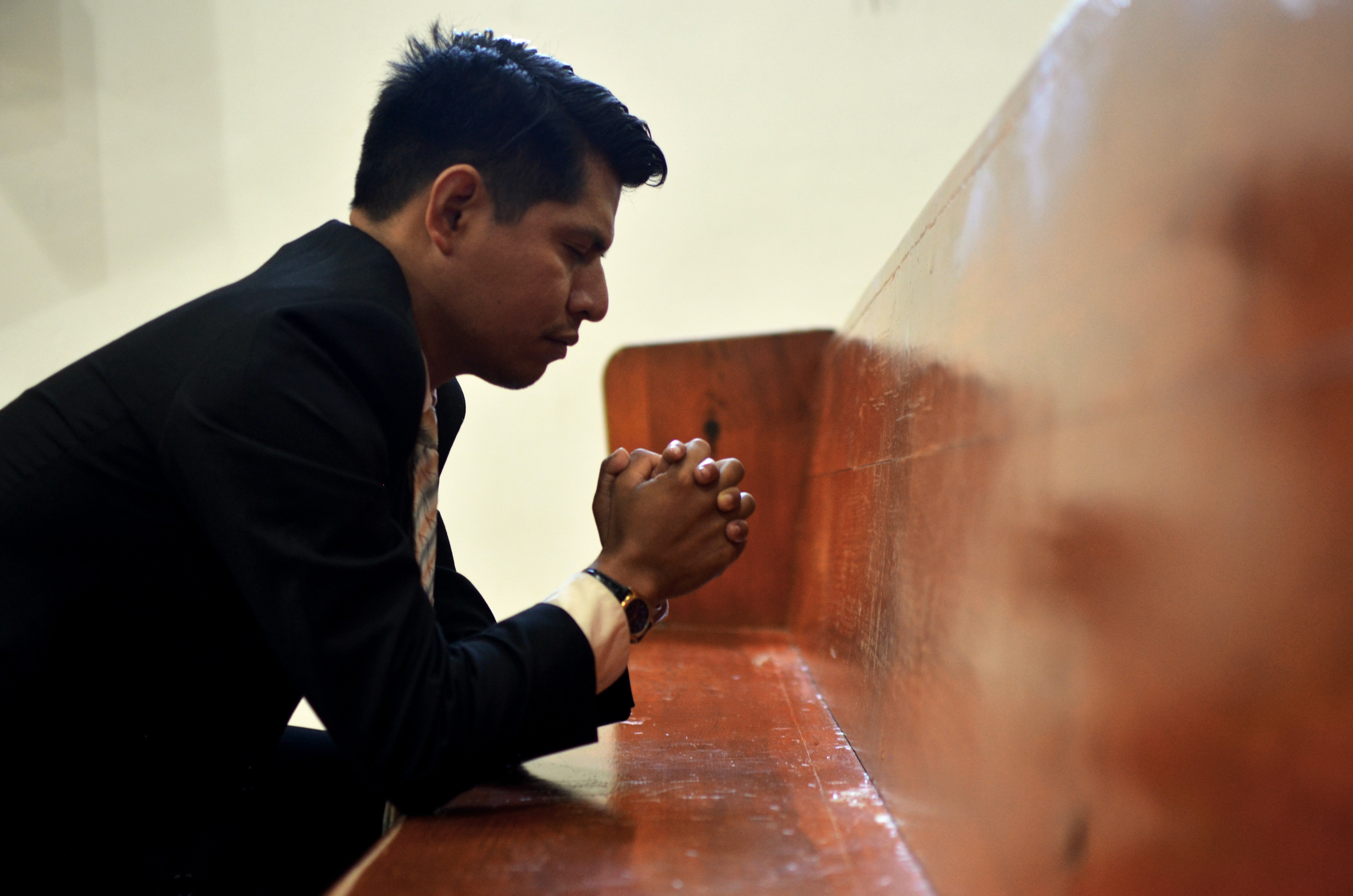The tax collector in today’s Gospel prays a prayer very similar to the Jesus Prayer held so close to the hearts of our Orthodox brothers and sisters. As Luke tells us Jesus’ parable of the Pharisee and the tax collector, the interesting thing is both men know their true selves, and they both speak it in their prayers. The Pharisee says he is not greedy, dishonest or adulterous. He fasts and pays his tithes. His examination of conscience determines he does what he is supposed to do. More power to him, right? Not so fast.
The tax collector, on the other hand, prays simply that he is a sinner and begs for God’s mercy. He does not list any sins; he does not speak them. He knows them too well. He keeps his distance and cannot look up to heaven, whether through shame or sorrow. He beats his breast, not from pride but from remorse, repentance. He prays, “O God, be merciful to me a sinner.”
The contrast with the Pharisee is obvious. This man takes his position. There is a place that is his in the temple area, and he goes there. But then Jesus says something that I do not believe is just the turn of a phrase, I see it as very deliberate: The Pharisee “spoke this prayer to himself.” Jesus did not say he prayed to God. The Pharisee spoke the prayer to himself. And suddenly we know that Jesus is speaking across the two millennia since, directly to us. Do we pray? Or do we pray to God?
Close to our Catholic hearts is the Our Father, the prayer that Jesus taught us. We learn it at a young age, we pray it often, multiple times a day if we take part in the Liturgy of the Hours. But all too often I ask myself — or, probably more accurately, the Holy Spirit gives me a poke — am I praying these beautiful, meaningful words from our Lord, or am I just reciting it because I know the words by heart? God have mercy on me!
In our First Reading, Hosea might be talking to Ephraim and Judah, but he’s speaking to me: Your piety is like a morning cloud. I have every intention of being holy, but as the day wears on, that holiness burns off, not because of what happens during the day, but because of my reaction to it. When there is conflict or criticism or distress, I can choose the holy path, we all can. But do we? Do I? O God, be merciful to me, a sinner.
Today’s readings are a perfect wakeup call for the middle of Lent. We try to deny things from our lives in a spirit of repentance, but that can’t be the whole story. God desires love, not sacrifice. So if we’re giving things up to free our hearts of them, we need to fill our hearts with something else, and that obviously is love. Then, the sacrifice has meaning and worth, because a heart has changed.
The Orthodox will tell you that the Jesus Prayer is very simple, but also that it is a long and difficult path. Its statement of faith and plea for help are easily said, but to commit to those simple words can take a lifetime. Faith is a journey. Communion with God is a process. What better time and place to start than here and now? Jesus Christ, son of the living God, have mercy on me, a sinner.
 Mike Karpus is a regular guy. He grew up in Michigan’s Upper Peninsula, graduated from Michigan State University and works as an editor. He is married to a Catholic school principal, raised two daughters who became Catholic school teachers at points in their careers, and now relishes his two grandchildren, including the 3-year-old who teaches him what the colors of Father’s chasubles mean. He has served on a Catholic School board, a pastoral council and a parish stewardship committee. He currently is a lector at Mass, a Knight of Columbus, Adult Faith Formation Committee member and a board member of the local Habitat for Humanity organization. But mostly he’s a regular guy.
Mike Karpus is a regular guy. He grew up in Michigan’s Upper Peninsula, graduated from Michigan State University and works as an editor. He is married to a Catholic school principal, raised two daughters who became Catholic school teachers at points in their careers, and now relishes his two grandchildren, including the 3-year-old who teaches him what the colors of Father’s chasubles mean. He has served on a Catholic School board, a pastoral council and a parish stewardship committee. He currently is a lector at Mass, a Knight of Columbus, Adult Faith Formation Committee member and a board member of the local Habitat for Humanity organization. But mostly he’s a regular guy.
Feature Image Credit: Samuel Rios, https://unsplash.com/photos/8XZlMCMlpX0
